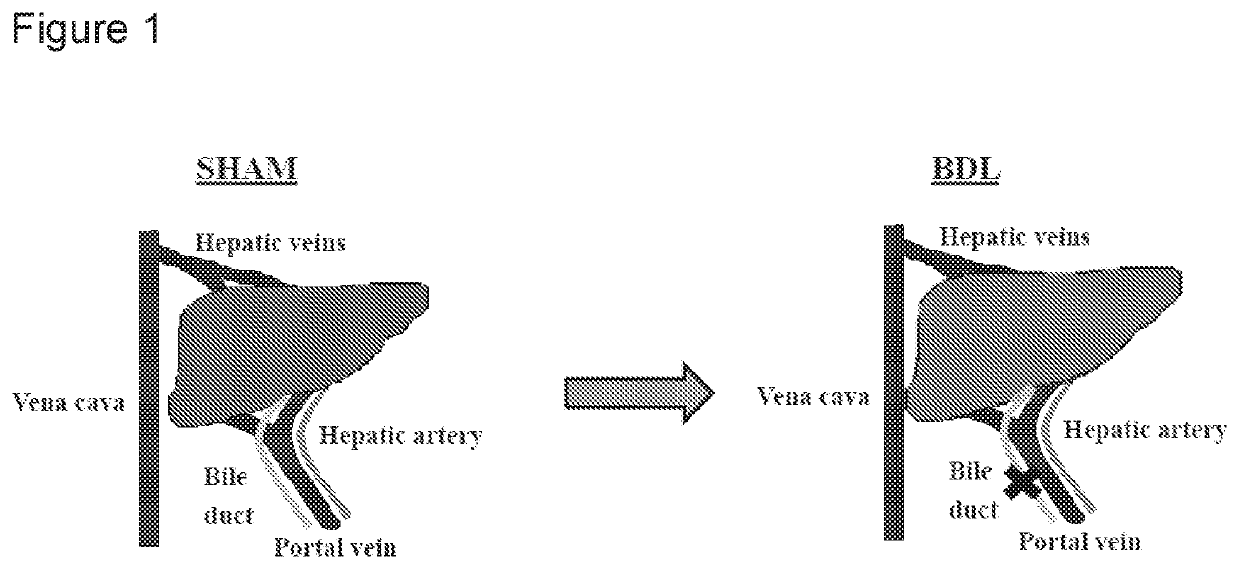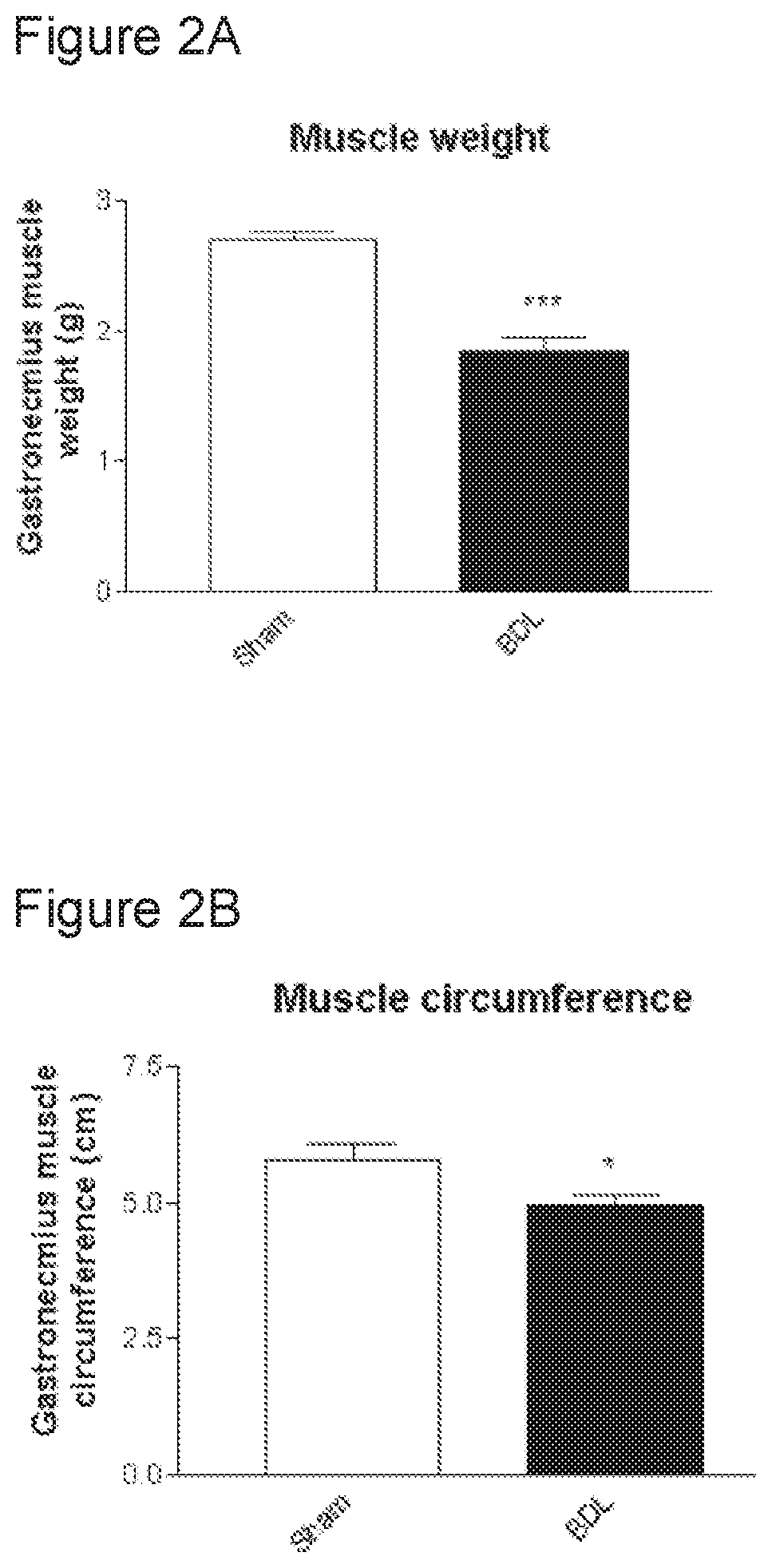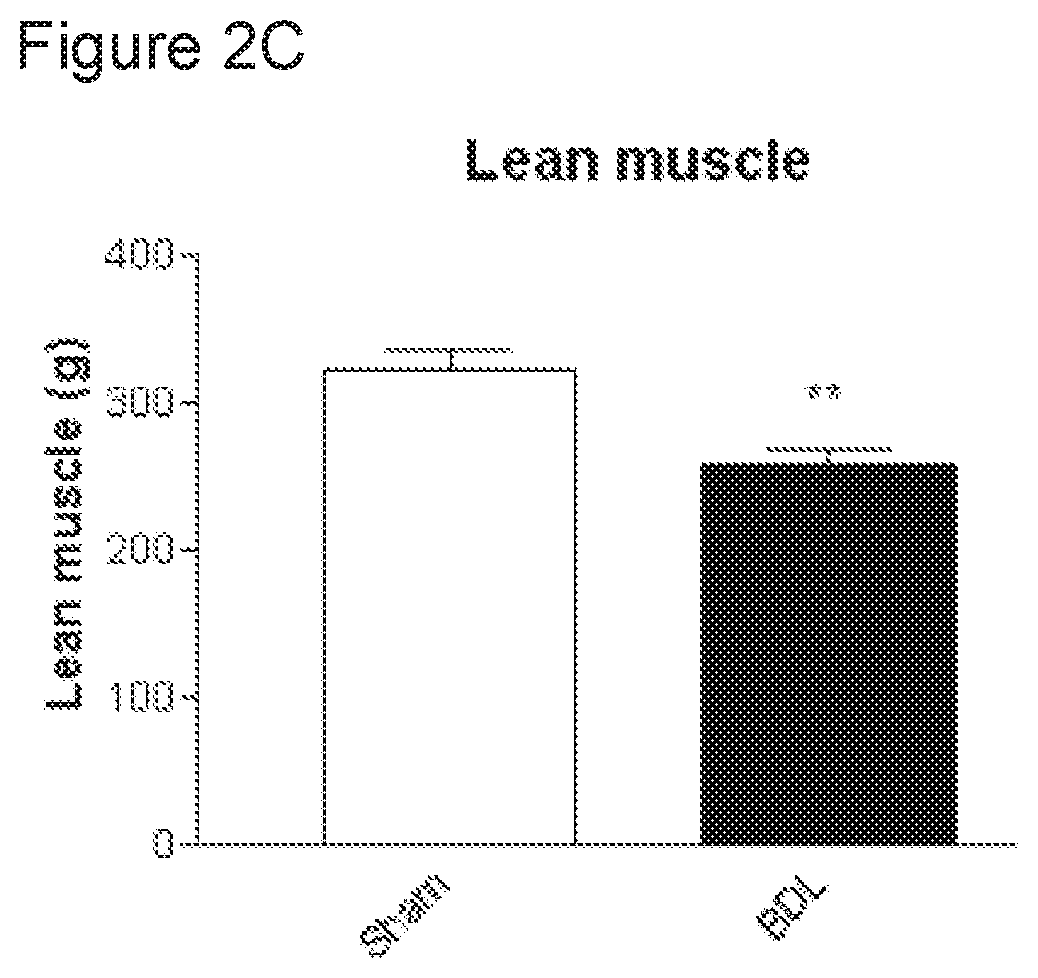Treatment and prevention of muscle loss using L-ornithine in combination with at least one of phenylacetate and phenylbutyrate
a technology of ornithine and phenylacetate, which is applied in the field of treatment and/or prevention of muscle loss using ornithine in combination with at least one of phenylacetate and phenylbutyrate, can solve the problems of muscle loss, deterioration of muscle quantity and quality, and complications affecting clinical outcome, so as to reduce blood ammonia and improve muscle metabolism
- Summary
- Abstract
- Description
- Claims
- Application Information
AI Technical Summary
Benefits of technology
Problems solved by technology
Method used
Image
Examples
example 1
In Vivo Effect in BDL Rats
[0080]Chronic liver disease (CLD) was induced in rats following 6-week bile-duct ligation (BDL). Four experimental groups were tested; 1) Sham; 2) BDL; 3) Sham+OP; and 4) BDL+OP. One week following BDL, rats were orally administered (gavage) OP (lg / kg) daily for 5 weeks. Body weight, fat and lean mass (ECHOMRI), blood ammonia, cerebral edema (specific gravity method), fractional synthesis of protein (FSR) in muscle (with D2O) and locomotor activity (day / night) were measured.
[0081]At the end of the 6-weeks experiment, BDL rats demonstrated a 4-fold increase in blood ammonia vs Sham-operated controls. This increase was reduced by 40% in OP-treated BDL rats. BDL rats gained less body weight compared to sham-operated controls (body weight of 360.2 g±13.6 vs 476.8 g±10.38; p<0.001) which was accompanied with a lower gain of lean mass and a lower muscle FSR. OP-treated BDL rats showed a significant increase in body weight (429.6 g±117.9; p<0.001 vs BDL) with a si...
example 2
Treatment of Sarcopenia in Rats
[0083]This example is to determine whether treatment with L-ornithine phenylacetate combinations (OP) decreases age-related muscle loss in rats.
[0084]The Fisher 344×Brown Norway (FBN) rat model has been recommended by the National Institute on Aging (NIA) for age-related research. In some instances, the rats suffer from chronic liver disease. Muscle mass, fiber number, and muscle cross-sectional area (CSA) in young (e.g., 5 months), middle age (e.g., 18 months), and old (e.g., 36 months) FBN hybrid rats are measured. Significant muscle mass loss, a reduction in muscle CSA, and muscle fiber loss are expected in, for example, the quadriceps muscles of the aged rat.
[0085]OP is administered, for example orally, to young, middle age, and old FBN hybrid rats. It is expected that the administration of OP is effective in reducing muscle mass loss in middle age and / or old FBN hybrid rats.
example 3
Treatment of Cachexia in Rats
[0086]This example is to determine whether treatment with L-ornithine phenylacetate combinations (OP) treat cachexia in rats.
[0087]A rat model of cachexia, for example the ApcMin / + rats, is used. In some instances, the rats suffer from chronic liver disease. Muscle mass, fiber number, and muscle cross-sectional area (CSA) of the ApcMin / + rats are measured before and after being administered with OP. It is expected that the administration of OP is effective in reducing muscle mass loss in the Apcmin / + rats.
PUM
| Property | Measurement | Unit |
|---|---|---|
| time | aaaaa | aaaaa |
| time | aaaaa | aaaaa |
| time | aaaaa | aaaaa |
Abstract
Description
Claims
Application Information
 Login to View More
Login to View More - R&D
- Intellectual Property
- Life Sciences
- Materials
- Tech Scout
- Unparalleled Data Quality
- Higher Quality Content
- 60% Fewer Hallucinations
Browse by: Latest US Patents, China's latest patents, Technical Efficacy Thesaurus, Application Domain, Technology Topic, Popular Technical Reports.
© 2025 PatSnap. All rights reserved.Legal|Privacy policy|Modern Slavery Act Transparency Statement|Sitemap|About US| Contact US: help@patsnap.com



